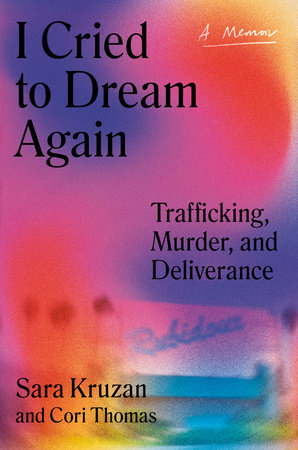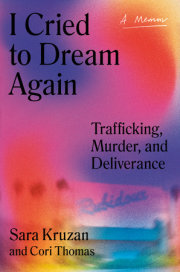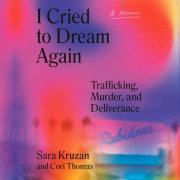I was eleven when I first met GG. I realized later that he must have been aware of the chaos that was my life. He had to have studied my patterns because he played me perfectly.
I was walking home after school. I lived with my mother in a small faded white clapboard house at 5297 Thirty-Fourth Street in Rubidoux, California. Rubidoux was not a white-picket- fence kind of place. In the late ’80s it was a low-income, gang-infested neighborhood. In the streets, you might hear NWA’s “Straight Outta Compton” or “Fuck tha Police” and other gangsta rap coming from boom boxes, open windows, or cars, the bass thumping deeply and loudly. Gangsta rap was very different from the music my mom played at home. She listened to Fleetwood Mac and Creedence Clearwater Revival. I was intrigued by the sounds I heard in the street. Rap music quickened my pulse, forcing me to bop my head to the beat. Mom called it “nigger” music. Rick James and Minnie Riperton were some of the few Black artists she listened to. She tolerated Prince and Michael Jackson, but only when she was in a very good mood.
Some of the young men in the neighborhood were affiliated with the Crips or the Rivas, a Latino gang. They dressed according to whichever gang they had ties to. We were all matter-of- fact about it; it was the culture of the neighborhood. Your parents or friends didn’t have to tell you to be careful. It was commonplace to hear gunshots right outside the window and to have to duck now and then. No one could afford to move out of Rubidoux. Most everyone was some version of poor. Many of my classmates had parents addicted to crack. Aside from my friend Shawna Lee, I rarely went to other kids’ homes, nor did they come to mine.
It was a neighborhood full of mean stares, glares, and paranoia. Constant rolling of the eyes and sighs seemed to underscore all communication. Everyone was out for themselves, tired, suspicious, and afraid that you might have your eye on what little they had, because you had just as little. I never completely felt that I belonged. It was primarily a Black and Hispanic community and I, with a mother who was clearly white, lived between the white and Black worlds. It felt as though I was always peeking out the back door, never quite sure I was accepted. My heart pumped with fear at the looks the men on the street gave me. They called females “bitches” and “hoes” and, in my case, “little light-skinned redbone with good hair.”
*
I heard the red Mustang purring like a huge lion behind me as I turned onto my block. When it caught up with me, a man leaned out the window and motioned for me to come closer. “Hey, excuse me.”
I approached the window and politely and cheerfully replied, “Yes?”
I remember when I met GG by something that happened not long before. On a hot afternoon in Rubidoux, a few of us neighborhood kids had played our version of the TV game show Double Dare. We created an obstacle course—placing the biggest tree leaves we could find here and there all the way down to the riverbed at the end of the street. The point was Sara Kruzan 11 to find and collect these leaves as fast as possible. I was super excited and certain that I would win. At eleven, I was one of the fastest runners in the neighborhood. When it was my turn, I took off, grabbing the leaves, and as I reached for the very last one, which was on a ledge near the top of a dumpster, I went in much too fast and smashed the right side of my head. The next thing I knew, paramedics were trying to bring me to consciousness—I had suffered a concussion. It took me weeks to recover from the dizziness and terrible headaches. My symptoms were just abating when the man pulled up beside me.
“I’ve been noticing you a lot, and I just want to talk to you. I’m gonna go get some ice cream and go to the park. I would love for you to come and join me. We won’t be gone long. Is that okay with you?”
Ice cream! I found his offer irresistible. GG leaned over and opened the passenger door. “What’s your name? People call me GG.”
“Sara,” I said shyly.
The door to the car slammed shut as if it was heavier than it looked. I sank into the passenger seat. The smell inside was fresh and clean; the car’s interior suggested a kind of power that I was completely unfamiliar with. GG was wearing a tank top and sweats, his hair pulled into a ponytail, but tight and twisted in the back. He had on black driving gloves cut at the knuckles and fastened with Velcro. The radio was tuned to a station that played old-school R&B slow jams. We drove to the Thrifty Ice Cream shop. My mouth watered as we stood in front of the display.
“Go for three scoops of your favorite flavor.”
I was in heaven. Three scoops! I wasted no time declaring “mint chocolate chip and rocky road.”
“Give her two scoops of mint and one rocky road,” he ordered the bored-looking teenage girl behind the counter.
GG opened his wallet to pay, dipping into a thick wad of bills. I had never seen that much money before.
We drove in the Mustang to a nearby park and headed toward a picnic table near the basketball court. Although I was tall for my age, he was six foot four, so I had to pick up speed as I walked next to him. I was wearing a sleeveless shorts jumpsuit, shiny black fake-patent- leather shoes from Payless, and white socks. Sitting on a bench, I focused now and then on my socks and shoes as I tapped the ground excitedly. I happily ate my ice cream cone and watched GG shoot baskets on the court by himself.
This was before everything that was going to follow in just an hour or so, and before what was going to happen in that motel room five years later. I think in that moment, I was hoping that somehow GG was going to rescue me. I could never have guessed that he was going to make my already messy life even messier, and that by age sixteen my biggest wish would be to be rescued from him and everything he had introduced me to.
After shooting baskets for a while, he took me back to his house—one of his houses. I didn’t know then that he had a few, and that I’d be calling them all home one day soon. I had never been in a house like it. It was clean, neat, and decorated with erotic sculptures and Afrocentric artwork: framed paintings of Black men in brightly colored suits dancing with women wearing red lipstick, flowing gowns, and high heels to the music of jazz musicians playing saxophones and smoking cigarettes.
GG turned on some more R&B and excused himself to go shower and change. The smell of his cologne and of his body after shooting hoops lingered in the air. I felt nervous and excited at the same time. I knew something wasn’t right. I knew that I shouldn’t have gone into this house with a man I Sara Kruzan 13 didn’t know, but at the same time it piqued a curiosity in me. I felt I was acting like a grown-up, somebody my mom’s age, who would know how to behave.
My mom always emphasized good manners. She’d smack me hard. “Sit up straight! Don’t talk with your mouth full. Don’t put your elbows on the table.” I was so grateful for the ice cream that I didn’t want to seem rude by leaving for no reason.
When GG walked back into the room, he was dressed in tight pants and a dark, satiny long-sleeved shirt that he’d left unbuttoned. He was wearing jewelry. I remember thinking, “This is what a real man is like.” He didn’t sit down next to me; he remained standing and said, real calm and quiet, “C’mere.” I stood, and he gestured that I should move closer to him. He closed his eyes and traced the outline of my figure with his hands. He kept doing that, tracing my body without touching it.
He spoke quietly, almost in a whisper: “Don’t be afraid. You can close your eyes if you want to.”
He gently pulled the jumpsuit top from my shoulders and peeled the outfit off me. He pulled down my panties. I stood naked before him. Humiliated and embarrassed, I stood motionless, unable to move, feeling as if I could barely breathe. He reached toward the back of my ass, still not touching me, but I could sense him. I could feel his energy. The next thing I knew, he put a hand between my legs and stuck a finger inside me. He started to moan. I felt ashamed that I was wet down there.
He whispered, “You’re perfect. You’re just what I need.”
Copyright © 2022 by Sara Kruzan. All rights reserved. No part of this excerpt may be reproduced or reprinted without permission in writing from the publisher.








